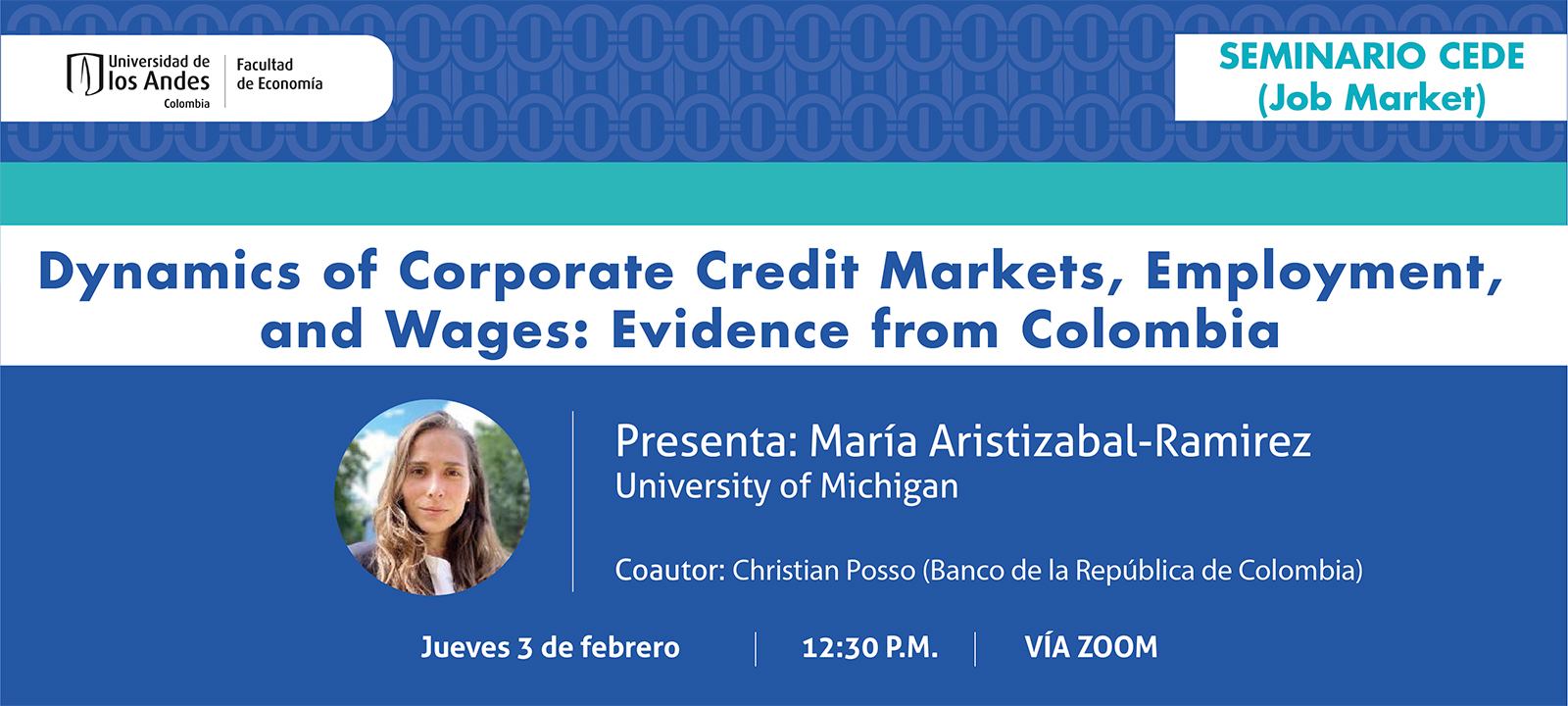Seminario CEDE - María Aristizabal-Ramirez

This paper examines the impact of changes in corporate credit supply on employment and wages outside of financial-crisis episodes. We construct a rich annual employee-employer-credit-bank database using Colombian administrative data from the period 2008--2018 and estimate corporate credit-supply shocks using firm and bank fixed effects. These estimates provide new evidence on three empirical facts: In response to a positive credit-supply shock, (i) firms increase their investment but do not change their average employment or wages; (ii) wages decline in the bottom half of the wage distribution while increasing at the top of the distribution; and (iii) firms with more liquid assets increase employment. We develop a small-open-economy model where the effect of a credit-supply shock is consistent with the empirical facts. In the model, two opposing mechanisms are key to explaining the results: capital-low-skill substitutability and firm-specific liquidity constraints to finance labor. These competing forces explain why average wages and employment do not change in response to credit-supply shocks while low-skilled wages decline. We use the model to study how permanent reductions in the banking intermediation premium influence firm-level responses to credit-supply shocks. Relative to the baseline model, we show a positive short-term impact on employment and wages and a negative long-term effect.

